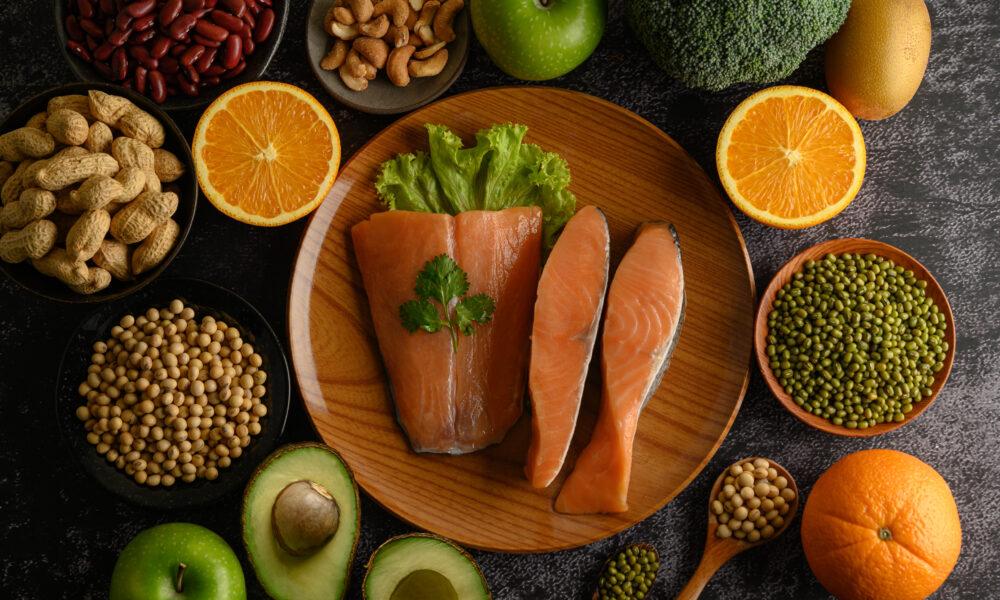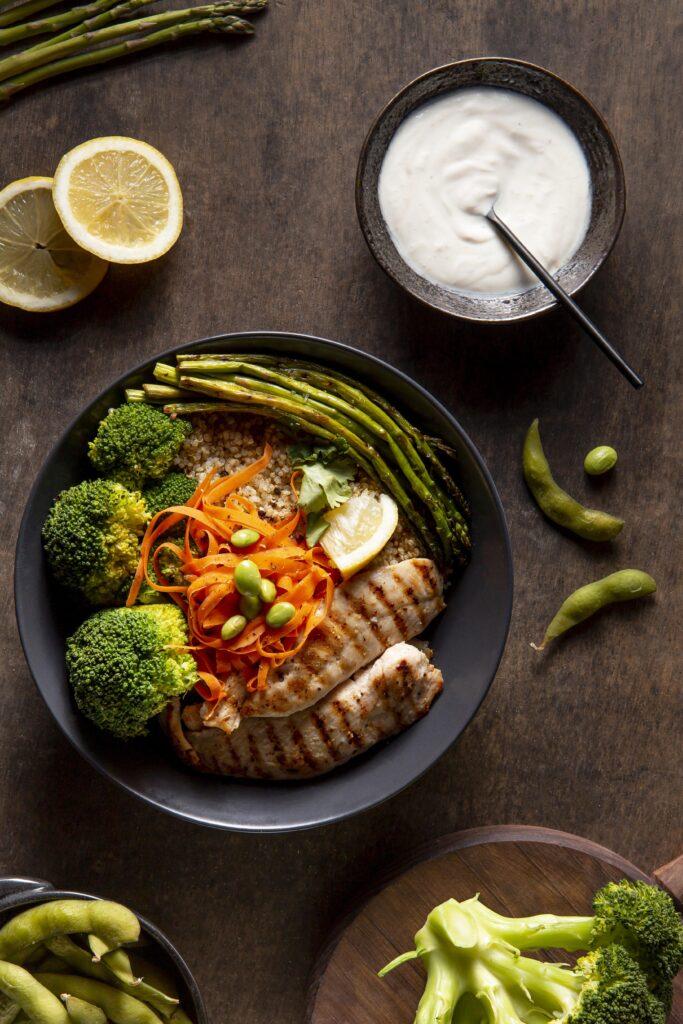- Messages
- 4,154
- Reaction score
- 1,831
- Points
- 113

Too much protein can damage your kidneys. Consume protein immediately after your workout; if not, it will not be effective. These are some of the protein myths that are spreading in the world of bodybuilding.
Unfortunately, we tend to believe them without questioning the science behind these claims. As a result, we fall into the trap of confusion, poor dietary choices, and even health risks that hinder rather than help our progress.
The truth is, your body doesn’t operate on bro-science. It responds to consistent nutrition, smart training, and recovery. In this article, we’ll break down some of the most common protein myths that may be holding back your fitness progress. By separating fact from fiction, you’ll be better equipped to fuel your body the right way and make smarter decisions for long-term gains. The Myths include:
1. Myth: You Can Only Absorb 20–30g of Protein Per Meal
One of the most persistent myths in fitness is the “30-gram limit” rule. Supposedly, your body can’t use more than 30g per meal.
The myth began with early studies when researchers found 20–30g of whey protein triggered peak muscle protein synthesis (MPS) after exercise. Despite the study using limited exercise routines and specific conditions, the findings shaped guidelines for optimal per-meal protein intake
While muscle protein synthesis may plateau around 20–30g per meal, that’s not the whole picture. Your body continues to digest and use excess protein beyond muscle building for tissue repair, enzymes, hormones, and more.
Moreover, new research challenges this limit. A study by MacNaughton used full-body resistance training and found that 40g of protein stimulated higher MPS. Another study shows that 100g of milk protein triggered a stronger and longer anabolic response. This response lasted over 12 hours. It disproves the idea that MPS maxes out at 30–40g.
Also, in calorie deficits, the body increases protein demands. Studies show that 35g or more is required to maintain proteostasis during a 30% deficit. This goes beyond muscle and supports whole-body protein turnover.
In conclusion, protein needs are not fixed. They vary by stress level, exercise, and protein quality. Your body can utilize more than 30g. The myth is outdated and misleading.

2. Myth: Eating Too Much Protein Will Damage Your Kidneys
Eating too much protein can damage your kidneys, which is a fact when it applies to individuals with pre-existing kidney problems. But to people who are healthy and engaged in high-intensity training like resistance training, it remains a myth.
This myth started from clinical findings. Researchers noticed increased glomerular pressure and hyperfiltration in patients with pre-existing kidney issues when protein intake rose. Over time, people wrongly applied this to everyone, including healthy athletes.
However, this assumption lacks proof. Studies show no kidney harm in healthy, active people consuming high protein. For example, athletes consuming 1.4–1.9 g/kg/day showed no renal issues. Even extreme intakes of up to 4.4 g/kg/day showed no kidney stress in resistance-trained individuals for a year.
On the contrary, higher protein intake helped improve fat loss, blood sugar, and cholesterol in healthy individuals who exercise..
Unless you have pre-existing kidney disease, there’s no evidence that high protein harms healthy kidneys. Therefore, consume protein up to 4.4g/kg/day to help build and maintain your muscle mass, which supports better metabolic and kidney health as you age.
3. Myth: More Protein Always Means More Muscle
The “More Protein Always Means More Muscle” myth likely originated from the belief that since protein builds muscle, more protein must lead to greater gains.
Fitness culture, supplement companies, and gym advice often promote this idea without considering how the body truly works. As a result, many beginners now believe they need massive amounts of protein to grow. But science says otherwise.
Studies show that eating more protein doesn’t always lead to more muscle. For instance, a recent study found that when untrained people ate more calories through protein, they gained weight. But the weight gain wasn’t just muscle. All groups, low, normal, and high protein, gained fat. Only those with moderate to high protein gained lean mass. In other words, excess calories led to fat gain, not protein.
Another study tested trained athletes eating very high protein up to 4.4 g/kg daily. That’s over five times the recommended daily allowance. Despite the high intake, their body fat didn’t increase. Muscle mass remained relatively unchanged unless paired with proper training.
Protein helps build muscle, but only to a point. Training intensity, volume, recovery, and total calories all matter.
4. Myth: Plant Protein Is Inferior to Animal Protein
The misconception that plant protein is inferior to animal protein stems from the idea that animal protein contains more essential amino acids (EAAs), which in turn triggers muscle protein synthesis (MPS).
Researchers found that animal protein, such as whey protein, is quickly absorbed, rich in EAAs, and boosts MPS faster and more effectively than slower-digesting proteins like casein or plant-based alternatives. This led to the conclusion that animal proteins were superior.
However, newer research proves otherwise. Studies show that when vegans or vegetarians consume enough total protein, especially with 2.0g leucine and 8–10g EAAs per serving, MPS increases similarly to animal protein. For example, vegans consuming 1.6g/kg/day from soy had similar strength and lean mass gains as omnivores.
So yes, while some plant proteins are lower in specific essential amino acids and slow to absorb, they give the same results as animal proteins when taken in larger amounts.

5. Myth: You Have to Eat Protein Immediately After a Workout
You’ve probably heard this one: “If you don’t slam a shake within one hour post-workout, your gains are gone!”The idea of this strict “anabolic window” is outdated. Research states that muscle remains receptive to protein for several hours after training.
Earlier studies found that older men who consumed 10 grams of protein right after workouts gained more muscle than those who waited two hours. The group that delayed intake saw no muscle growth and even a decrease in certain muscle fibers. This study gained popularity and has been cited over 800 times, which suggests it is a fact. However, it had significant flaws. The sample size was small, with only 13, and the protein dose was low.
Later studies corrected this. They found no difference in muscle protein synthesis whether protein was consumed one or three hours after training. Muscles can stay sensitive to protein for up to 27 hours post-exercise. What’s more important is your overall protein distribution throughout the day and making sure you have protein in the hours before and after your workout.
6. Myth: Consuming Animal Protein Can Cause Health Problems
The misconception that animal protein can cause health issues rose from the early data from observational studies, which suggested red meat increased heart disease and cancer risk. These studies, however, rarely separated processed from unprocessed meats. Many also failed to account for confounding factors such as smoking, alcohol, obesity, and poor diet. Over time, these flaws fueled fear around all animal protein.
The truth is, not all animal products are hazardous to your health. Processed meats (sausages, cold cuts) may raise health risks due to additives and cooking methods. In contrast, unprocessed red meat and white meat show no consistent link to disease.
A 2010 meta-analysis found no strong association between red meat and coronary artery disease. Another review showed that white meat and fish may reduce cancer risk.
Blaming all animal protein is misguided. Eat moderate, unprocessed meat. Pair it with fruits, vegetables, and exercise and focus on whole foods.

7. Myth: Bodybuilders Need a Protein Supplement to Meet Their Daily Requirement
Many beginners see athletes chugging protein shakes post-workout and assume it’s essential. Fitness influencers often push the idea that progress is impossible without powders. This has built the belief that protein supplements are a must-have.
However, this is misleading. Scientific evidence shows that while protein needs increase with training, these needs can still be met through whole foods. Exercising individuals require around 1.4–2.0 g/kg/day. Those focused on physique goals might need 2.3–3.1 g/kg of lean body mass. A study showed improvements in body composition at 3.4 g/kg/day using whey protein. But this doesn’t mean the supplement was necessary—only that it helped meet a higher intake conveniently.
Protein supplements are simply tools. Not magic. They help meet daily protein goals without extra cooking or calories. But they’re not superior to real food. If you already eat enough protein, supplements offer no added benefit.
8. Myth: Protein Only Builds Muscle – Debunked
Many believe protein’s only role is to build muscle. This myth likely started in bodybuilding communities. Protein powders, shakes, and bars are often marketed as muscle builders. Gym culture reinforced the idea that more protein equals more muscle. Over time, this created a narrow view of the protein’s function.
But protein does much more than muscle building. Every cell in your body needs protein to function. Proteins make up enzymes, hormones, and immune cells. They help repair tissues, regulate metabolism, and transport nutrients. Protein even helps maintain skin, hair, and nails. Without enough protein, your body can’t perform these essential tasks.
Conclusion
Protein myths are everywhere—from gym locker rooms to TikTok fitness influencers.
But science doesn’t lie: most of these myths are either outdated or flat-out wrong. Falling for them can stall your progress and lead to poor nutrition choices.
Protein is crucial, but it’s not magical. It works best when paired with innovative training, quality sleep, and a well-rounded diet. By busting these myths, you gain the knowledge to train smarter and recover faster. Don’t let misinformation hold you back. If you want real gains, ditch the noise and focus on evidence-backed basics:

